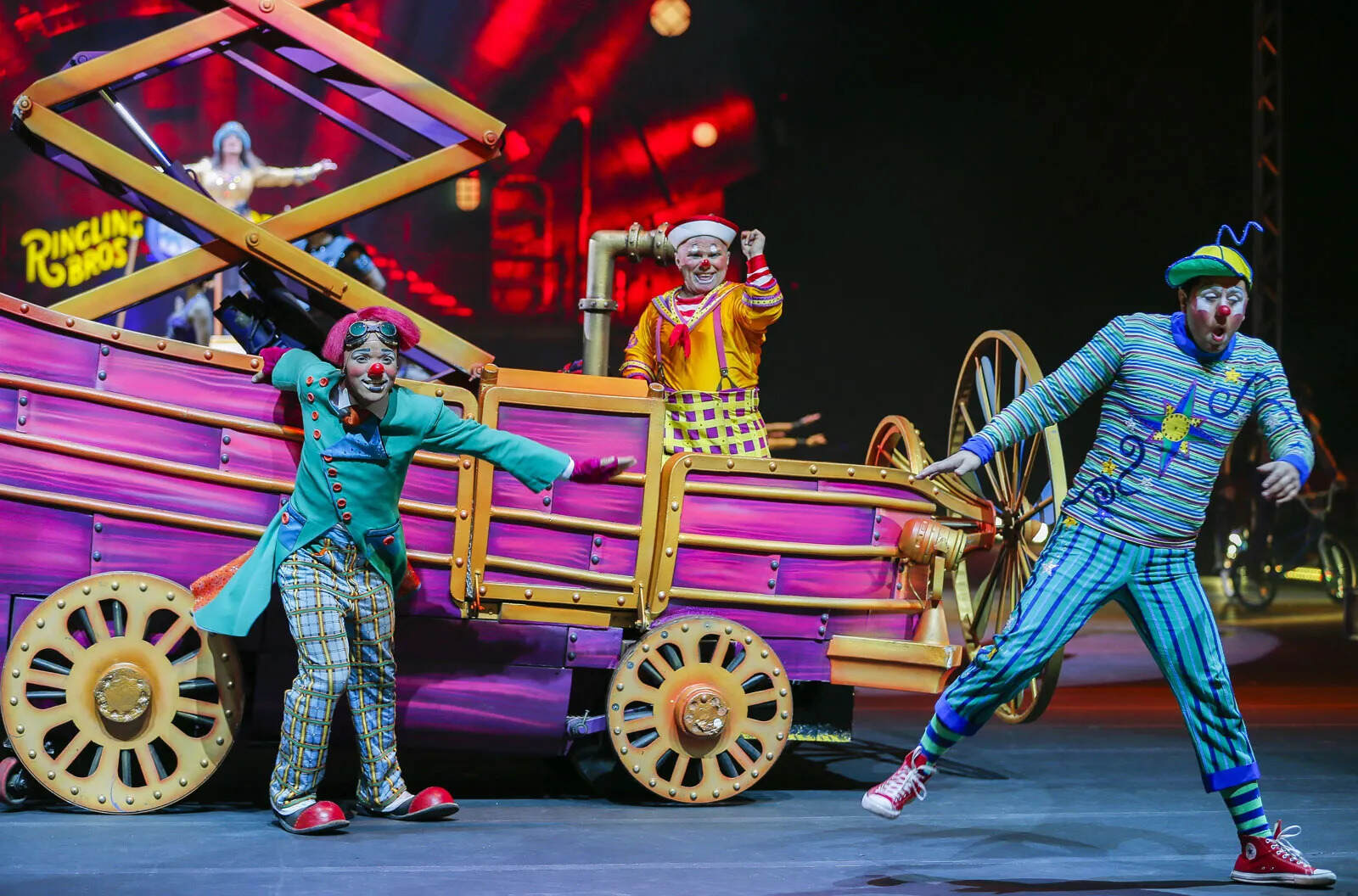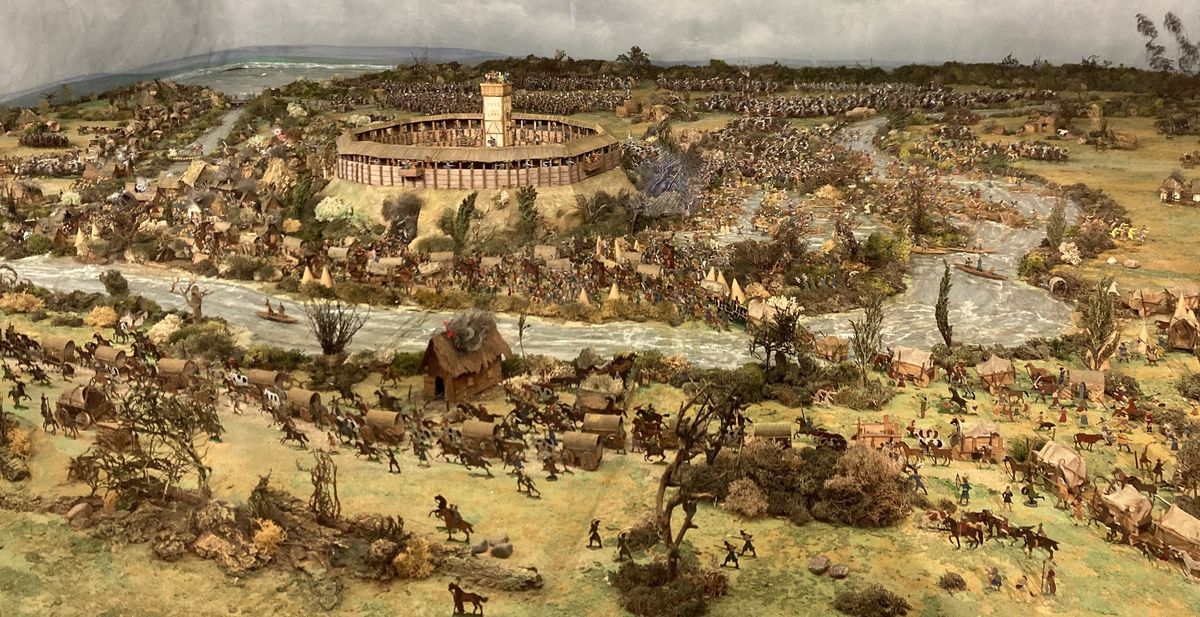
The circus has always been a spectacle of wonder and joy, captivating audiences with its thrilling acrobatics, daring stunts, and mesmerizing performances. And at the heart of this enchanting world, there is the beloved circus clown. With their vibrant costumes, exaggerated makeup, and hilarious antics, these whimsical characters bring laughter and mirth to both children and adults alike.
In this article, we will delve into the fascinating world of circus clowns and uncover 20 intriguing facts about their history, traditions, and secrets. From their origins in ancient civilizations to their iconic status in popular culture, clowns have been an integral part of the circus for centuries. So, buckle up and get ready to be amazed as we peel back the layers of mystery and discover the captivating world of circus clowns!
Key Takeaways:
- Circus clowns have a rich history and bring joy to people of all ages with their unique styles, physical comedy, and vibrant costumes. They continue to evolve and captivate audiences worldwide.
- Clowns use specialized skills, props, and makeup to create laughter and connection with their audience. Their timeless appeal and ability to bring out the inner child in everyone make them a beloved part of entertainment.
The circus clown has been around for centuries
The tradition of the circus clown dates back hundreds of years, with its roots in ancient civilizations such as the Romans and Greeks. The role of the clown has evolved over time, but its purpose has always been to entertain and bring joy to audiences.
Circus clowns come in many different styles
From the classic white-faced clown to the whimsical Auguste clown, there are various styles and personas that circus clowns adopt. Each style has its own unique characteristics and comedic elements.
Clowns have their own language
Clowns often use a form of silent communication known as “gibberish” or “clownese” to interact with each other and the audience. This special language is based on exaggerated gestures, facial expressions, and exaggerated movements.
The red clown nose is a symbol of the circus clown
The iconic red clown nose is synonymous with the circus clown. It represents humor, wackiness, and a sense of fun. The red nose is a classic accessory that instantly transforms an ordinary person into a clown.
Clowns have a repertoire of physical comedy routines
Whether it’s slipping on a banana peel, squirting water from a flower, or pulling endless objects out of a tiny suitcase, clowns rely on physical comedy to entertain their audiences. These routines require impeccable timing, coordination, and a keen sense of comedic timing.
Clowns use props to enhance their performance
From juggling balls to oversized shoes to musical instruments, clowns often incorporate a variety of props into their acts. These props add an element of surprise, spectacle, and playfulness to their performances.
Clown makeup is a crucial part of the clown’s identity
The elaborate and colorful makeup that clowns wear is an essential part of their identity. Each clown designs their own unique makeup, which helps to define their character and differentiate them from other clowns.
Clowns have their own code of conduct
Clowns adhere to a set of ethics and guidelines known as the Clown Code of Conduct. This code promotes respect, kindness, and professionalism among clowns, ensuring that they always put the needs and well-being of their audience first.
Clowns often have specialized skills
While all clowns are skilled in the art of comedy, many clowns also have other talents and abilities. Some clowns may be accomplished musicians, jugglers, acrobats, or magicians, adding an extra layer of entertainment to their performances.
Clowns bring laughter and joy to people of all ages
Whether performing at a children’s birthday party or entertaining a crowd in a circus arena, clowns have the incredible ability to bring smiles to people’s faces. Their infectious laughter and playful antics create an atmosphere of joy and happiness.
Clowns have been featured in countless books, movies, and TV shows
Throughout history, clowns have been a popular source of inspiration for writers, filmmakers, and television producers. From the classic clown characters like Charlie Chaplin’s “Tramp” to modern interpretations in shows like “The Simpsons,” clowns have left a significant impact on popular culture.
Clowns undergo extensive training
Becoming a skilled clown requires years of training and practice. Clowns learn various techniques, such as improvisation, physical comedy, and audience interaction. They also develop their own unique clown persona and style.
Circus clowns have their own support networks
Clowns often belong to a community or organization dedicated to supporting and promoting the art of clowning. These networks provide resources, workshops, and opportunities for clowns to connect with one another and further develop their skills.
Clowning can be a physically demanding profession
The life of a circus clown can be physically demanding, requiring stamina, flexibility, and endurance. Clowns often perform multiple shows a day, engaging in energetic and physically challenging routines.
Clowning is a global phenomenon
Clowns can be found in circuses and entertainment industries all around the world. Each culture may have its own unique style of clowning, but the universal language of laughter transcends borders and brings people together.
Clowns have a rich history of creating comedic partnerships
Abbott and Costello, Laurel and Hardy, and the Marx Brothers are just a few examples of famous comedic partnerships that have captivated audiences with their hilarious antics. Clowns often form duos or groups to create memorable and entertaining comedic performances.
Clowns have their own sense of fashion
Clowns are known for their vibrant and colorful costumes. Their clothing is often oversized and adorned with bold patterns, polka dots, and mismatched accessories. These costumes reflect the playful and whimsical nature of the clown.
Clowns bring out the inner child in everyone
Watching a circus clown perform can awaken the childlike wonder and joy within us. Clowns have a magical ability to tap into our imaginations and remind us of the simple pleasures of laughter and play.
Clowns have a deep connection with their audience
A successful clown knows how to connect with their audience on a profound emotional level. They engage with their spectators, involve them in their routines, and create a sense of belonging and shared experience.
Clowns continue to evolve and reinvent their craft
While the image of the circus clown has remained iconic throughout the years, clowns have continually adapted and innovated their performances to stay relevant. They embrace new technologies, incorporate modern humor, and find creative ways to captivate audiences.
Circus clowns have captivated audiences for generations, but there's more to explore in the world of performance arts. Hone your juggling skills with insider tips, or discover the grandeur of India's National Centre for the Performing Arts. Dive into a treasure trove of entertainment facts that will leave you amazed and inspired. Whether you're a fan of the big top or simply curious about the diverse realm of performance, these fascinating articles promise to enlighten and entertain.
Was this page helpful?
Our commitment to delivering trustworthy and engaging content is at the heart of what we do. Each fact on our site is contributed by real users like you, bringing a wealth of diverse insights and information. To ensure the highest standards of accuracy and reliability, our dedicated editors meticulously review each submission. This process guarantees that the facts we share are not only fascinating but also credible. Trust in our commitment to quality and authenticity as you explore and learn with us.


